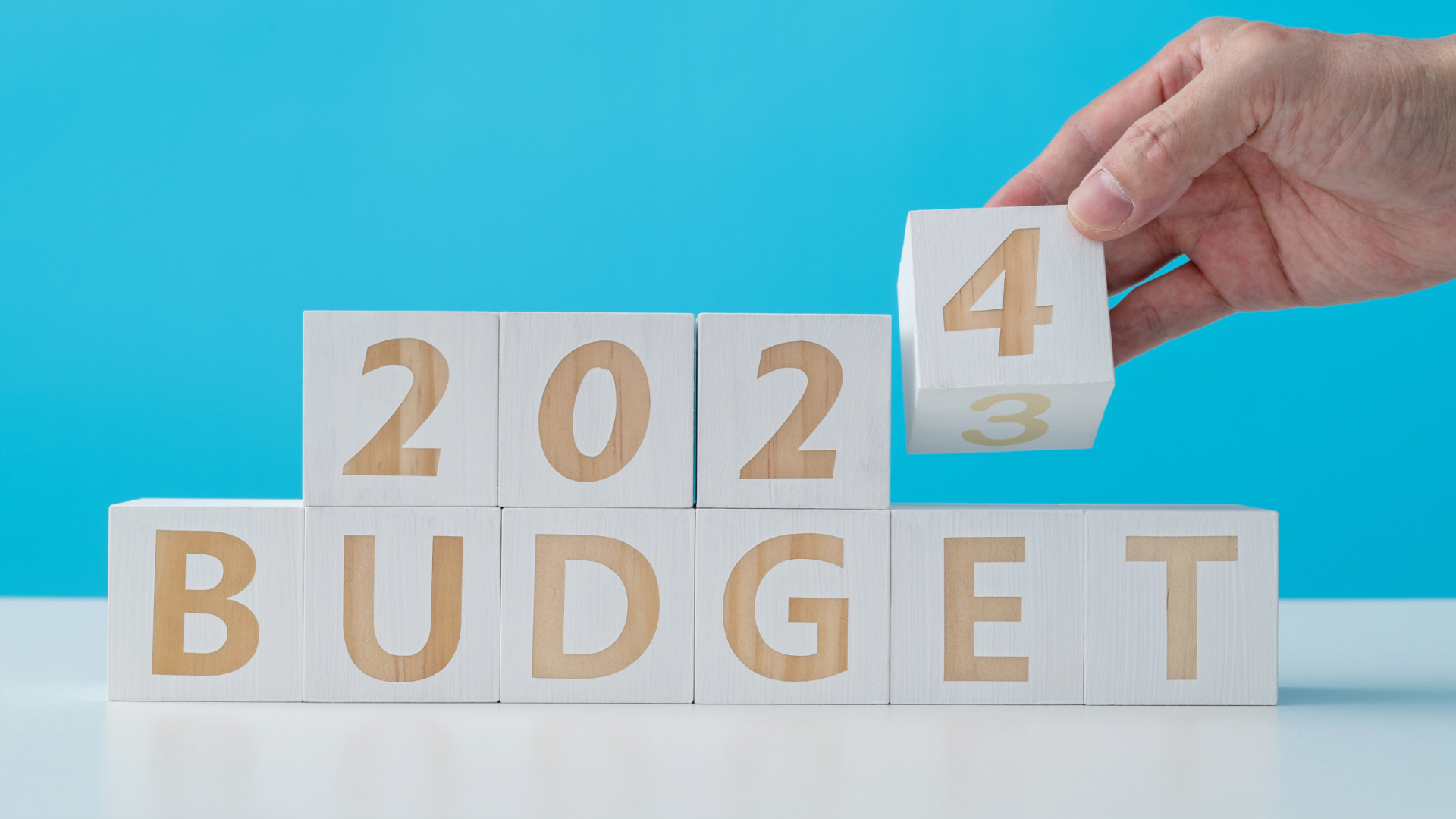Taking your first step on the property ladder can be daunting but White & Brooks is here to support you at every important milestone. Get started with our guide to buying your first home but if you have any more questions – or need a little extra hand holding along the way – don’t hesitate to get in touch with the team.
1. Buying your first home? Let’s get real
There’s more to choosing the right home than falling in love with a swanky kitchen or a lush garden with a hot tub. However easy it may be to get carried away (yes, we know you probably scroll Instagram and feel a pang of envy), try and put practicalities first. Step 2 is really important but there are other considerations, such as the ongoing upkeep of a property, monthly bills and even the work needed to keep a pristine garden in shape.
Top tip: ask White & Brooks for typical property costs in your area for a good starting point
2. Affordability
It’s easy to get swept away with dreams of a huge family kitchen or a stunning sea view but these facets may carry a premium price tag. You need to know how much money you have and how much you could borrow before you start scouring the property market.
Special online calculators – found on mortgage lender and price comparison websites - can help you understand your financial position. They will take into account any credit card debt, personal loans and major outlays, explaining how this may affect your mortgage borrowing prospects. We’d be happy to talk through the figures with you, so just ask.
Top tip: Don’t see your first property as a way of making money in the future – view it as a home to enjoy.
3. Deposits & mortgages
Work out how much you can afford to put down as a deposit, bearing in mind the costs highlighted in step 5. As a rule of thumb, the larger the deposit, the less you’ll need to repay every month - and the more competitive the rates of interest will be when applying for a mortgage.
Mortgages come in all shapes and sizes, and it can be tricky to understand the wealth of products available. Talk to established lenders or a trusted financial adviser so you’re aware of the difference between fixed, tracker and variable rates, the term the mortgage and any less obvious costs you’ll be liable for, such as an early repayment charge. If you don’t have enough money for a deposit, you may be able to get a 100% mortgage, usually backed by parents or family members and known as a guarantor mortgage.
Your lender will issue a ‘mortgage agreement in principle’ after you’ve passed its affordability checks. This shows they are confident you can afford the mortgage repayments and it’s also a sign to sellers that you’re a qualified buyer with finance in place.
Top tip: Try to make mortgage overpayments on a monthly or annual basis to reduce your debt.
4. First-time buyer assistance
The Government is very keen to help Generation Rent become Generation Buy, and it has introduced a number of incentives to assist property novices.
In 2021, the Chancellor launched a mortgage guarantee scheme that enables lenders to offer 95% mortgages to first-time buyers with a 5% deposit. This scheme is expected to run to December 2022, for new and resale properties priced up to £600,000.
Stamp duty is another area where first-time buyers get special treatment, with no stamp duty to pay on the first £300,000 of a property, where the purchase price is £500,000 or less and the buyer meets the Government’s criteria. Want to know if you qualify? Just ask!
In addition, a new Help to Buy equity loan scheme for first-time buyers was launched on 1st April 2021 and runs until March 2023. During this initiative, the Government lends buying novices up to 20% of the cost of a newly built home, with the buyer providing a 5% deposit and using a 75% mortgage to finance the rest of the purchase.
Top tip: the Help to Buy equity loan scheme is only applicable to new build home, so concentrate on what housebuilders are releasing for sale.
5. Potential costs
Once you have established your purchasing budget, it’s time to factor in other buying costs. Consider conveyancing and mortgage arrangement fees, surveyor’s fees, removal costs, the replacement of any appliances/furniture you’re leaving behind in a rented property, new home furnishings, buildings and contents insurance, and other running costs, which will include council tax and a TV license.
Top tip: if you’re planning an interior makeover in your new home, don’t forget DIY costs and the purchase or hire of tools.
6. Location, location, location
A first-time buyer’s budget will usually dictate where they can afford to live. Perhaps you’ll take the route of the smallest property in a more desirable area, or the biggest home you can afford somewhere on the cusp of great things.
Rather than randomly stick a pin in a map, factor in the location of your employer, family, friends, schools, childcare, recreation, shopping and travel connection, then decide on where you need to be closest to. When you’ve identified a few neighbourhoods of interest, register directly with estate agents in the area to hear about available properties first and keep an eye out for ‘for sale’ boards too – the White & Brooks ones are hard to miss! Don’t forget to set property alerts using our website so you never miss a new instruction.
Top tip: Don’t view homes that you can’t afford – it can be demoralising, and unfair on the seller and the estate agent.
7. Viewings & your shortlist
Cute cottage with roses round the door or the joys of a new shiny home? Garden or balcony? Coast, harbourside or in a country village? There’s a wealth of choice so make a list of your ‘must haves’ before starting your search or risk being overloaded with options. The White & Brooks search facility has a number of filters to help narrow down your results, including price, location, property type and number of bedrooms. Once you have your list of homes to view, make a shortlist and start booking viewings.
Top tip: It’s wise to visit a property at different times of the day to see how the neighbourhood feels by day and night.
8. Making an offer
If you love a property and have a mortgage agreement in principle, don’t hold back - make an offer! An offer has to be made to the seller’s estate agent and they’ll pass this on, in writing, to the vendor for consideration.
When deciding how much to offer, consider the location and condition of the property – you may find it useful to check recently sold prices for similar properties in the area for a guide. Your first offer doesn’t have to be your final offer, however. You can revise this up if you’re outbid by another buyer, or reduce your offer if the survey results reveal faults and flaws, such as damp or dry rot.
Top tip: if you see ‘OIEO’ after a property’s asking price, this means the seller will only considers ‘offers in excees of’ the stated price.
9. Working towards exchange
The conveyancing stage kicks in as soon as a ‘memorandum of sale’ is shared between everyone involved. The first legally-binding milestone everyone wants to meet is the ‘exchange of contracts’. This is when the conveyancing solicitors representing the buyer and the seller swap their signed contracts. It is very rare for a buyer or seller to pull out of a transaction after exchange has taken plan – if either party does withdraw, there are usually substantial financial penalties.
Top tip: a buyer is required to pay their deposit when contracts are exchanged, so be ready for your solicitor to request a transfer of funds.
10. Completion
Completion is the legal process of transferring ownership of a property from the seller to the buyer, and a date is usually agreed between everyone involved once exchange has taken place. Completion can only happen when the seller’s solicitor confirms they have received the mortgage funds from the buyer’s solicitor. Once the money has cleared, the keys can be released to the new property owner.
Top tip: Although it’s common to move into a home on the same day as completion, this isn’t a mandatory requirement.


 By
By 



Share this with
Email
Facebook
Messenger
Twitter
Pinterest
LinkedIn
Copy this link